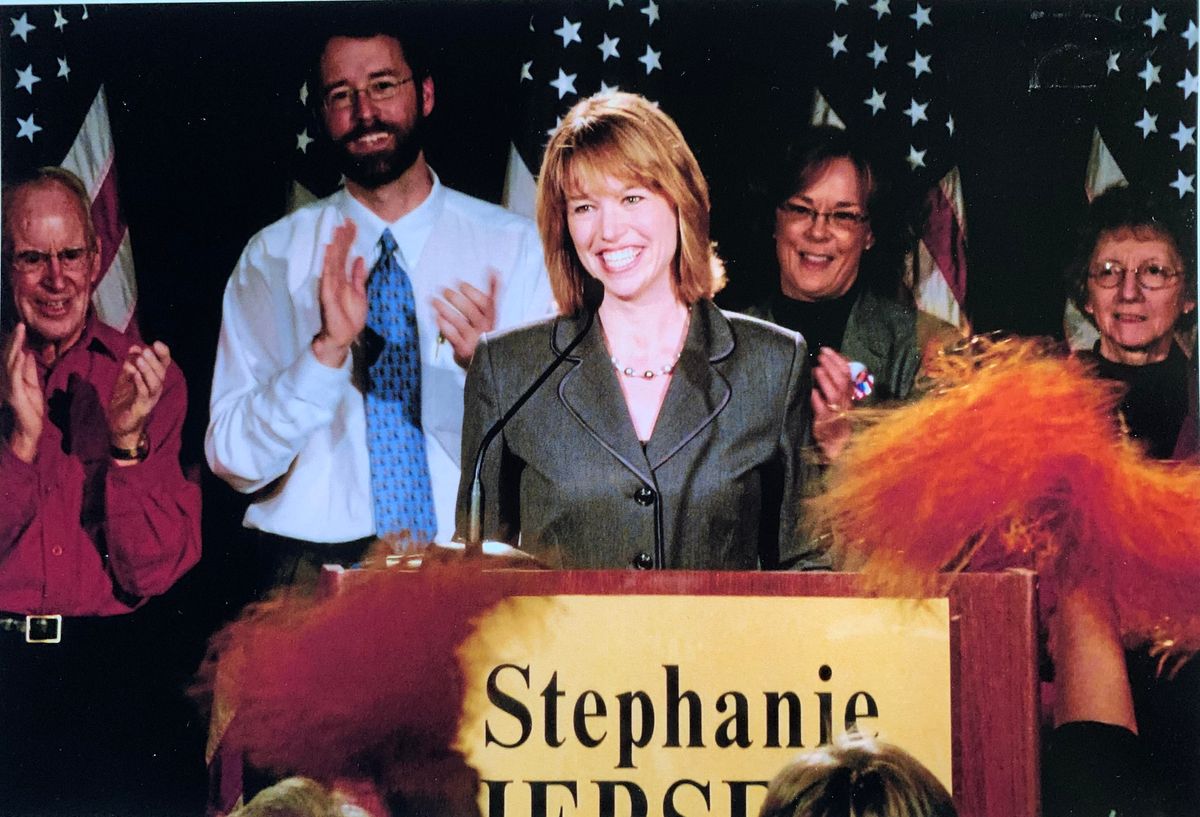President speaks on about the importance of voting

South Dakota’s midterm election will take place on Nov. 8. Regardless of political affiliation, it is important for college students to exercise their citizenship by voting for the candidates they support. Augustana University President and former politician Stephanie Herseth Sandlin shares her advice on voting and speaks about politics.
What do you have to say to Augustana students regarding the upcoming election?
“I do hope that students at Augustana are paying attention and that they’re registering to vote, whether that’s here or in their home states, and that they’re either getting home to vote or they’re getting the absentee.”
What should students know when it comes to our South Dakota election process?
“Well, first, do you want to vote here? If you’re not a registered voter in South Dakota, do you want to vote here? And if so, what issues matter most to you, and what’s the respective candidates’ positions on those issues?”
What should students know about the upcoming gubernatorial election?
“Take the time to do a bit more research than just what you’re seeing in the 30-second ads. I would just ask the students to be curious about the life experiences of the candidates and their positions on the issues. They both have voting records. They both have articulated priorities.”
Do you have anything to say to American citizens more generally?
“We can’t even take our democracy for granted, and too many people do. We’re living in a dangerous time, and so every American needs to hold dear our democracy.”
What makes politicians good leaders and decision-makers for our people?
“Don’t just talk to the people who agree with you. And when you’re confronted with something that feels uncomfortable and angry, listen and show some courage. To counter the unhealthy dynamics in our political country today, really, you have to engage with people who don’t agree with you and try not to be combative but compassionate. At the same time, be strong in your own convictions.”
What did you learn through your time in politics that you’ve brought back here?
“When I was first running, I had a lot of skepticism based on my age, my gender, and that I had spent some time outside of South Dakota. What wise women helped me understand is you shouldn’t be expected to have all the answers to all the questions. You’re out there listening. You’re listening to what’s important to people.
“I think that having a very diverse constituency in South Dakota, whether it’s differences in farming and ranching, differences in banking and healthcare, differences in native and non-native, differences in private and public education, you understand that you’ve got people that are willing to share their perspective and listen. And that there aren’t easy decisions.”
How is our political climate different now than it has been in the past?
“There is a tendency for our political climate to perpetuate a winner-take-all type of politics. If you win an election, you better go as far as you can because in the next election, you might not.
“I think that destroys the art of compromise and it perpetuates the extreme ideological voices in our political climate. [I hope] this generation of voters can be willing to push back against this sort of outrage culture and listen to one another, and not make harsh judgments about someone’s moral character because they happen to hold a position different than yours. Listen to understand rather than always trying to persuade.”
How did you start your career in politics?
“I grew up in a family that was dedicated to public service on my dad’s side, and my mom’s side of the family were Republicans. But the public service piece was pretty strong as I was growing up.
“My dad was in the legislature. My grandmother was serving as secretary of state, and so I had an interest in pursuing a career in politics. The seeds that were planted early from my family got a lot of watering from women of my mother’s generation when I was in my early 30s, and so I attribute it to those women who encouraged me to run for public office.”



